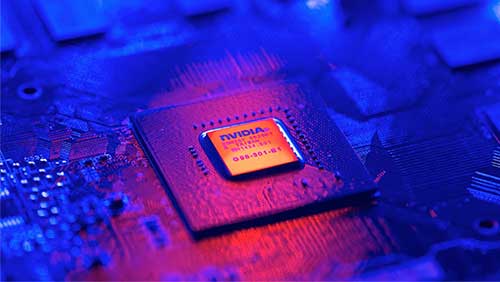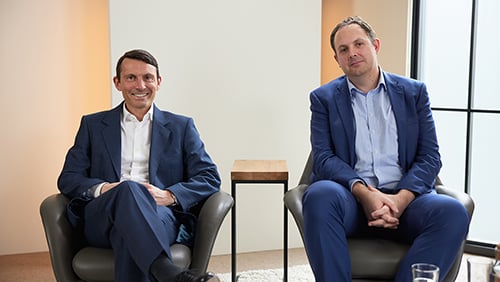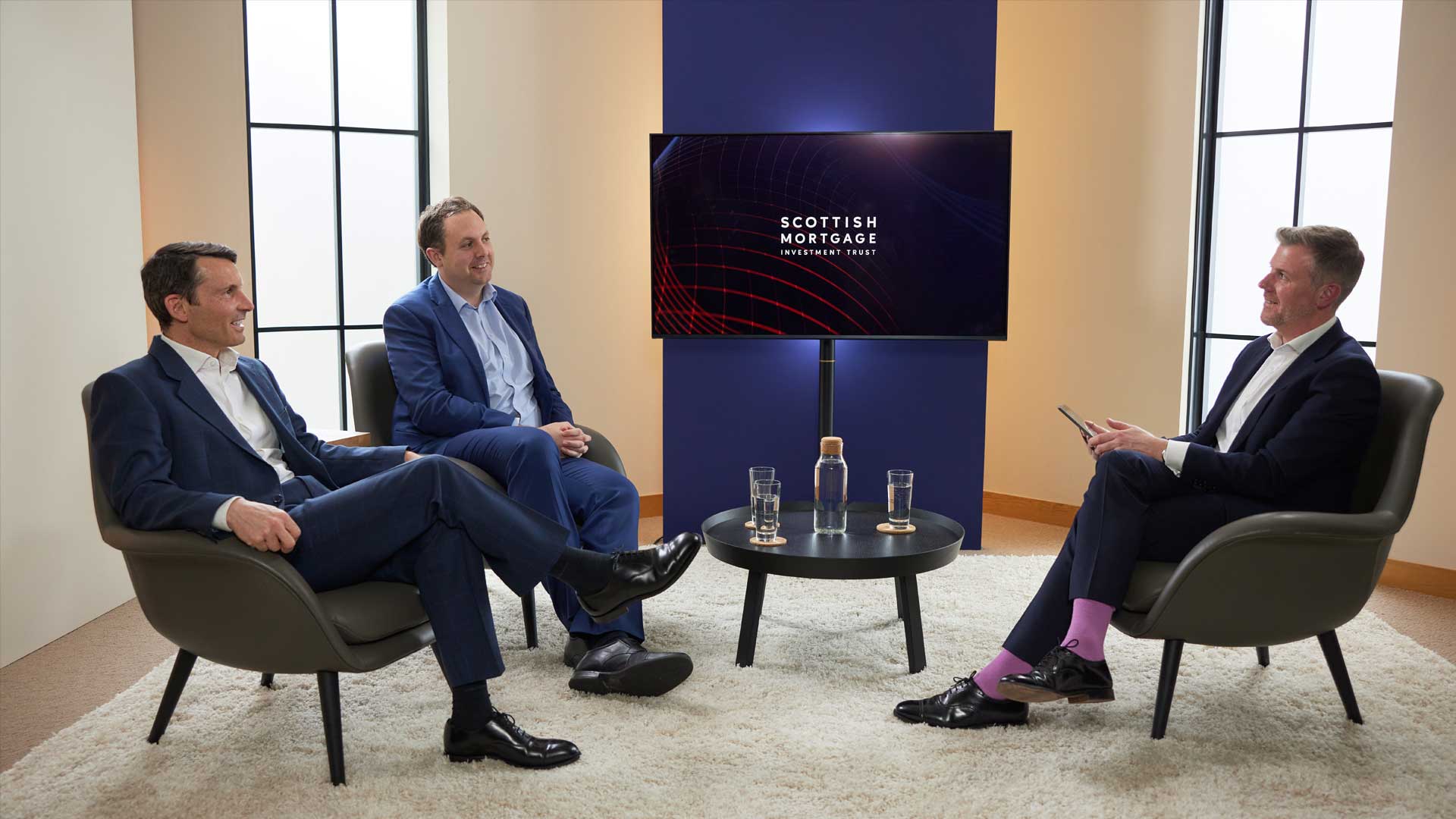Next generation of progress
The Scottish Mortgage Team
In this series of articles, we highlight companies in the Scottish Mortgage portfolio that are taking technological advances to the next level, a new generation of companies who will reshape our world and what is possible in the years to come.

The value of shares in Scottish Mortgage, and any income from them, can fall as well as rise and investors may not get back the amount invested.
It is 1956. In the sleepy town of Hanover, New Hampshire, a select group of computer scientists organise a gathering at Dartmouth College. A couple of decades earlier, Alan Turing had invented the first concepts of the modern computer. Now, the Dartmouth Summer Research Project on Artificial Intelligence, as it was known, is debating a more abstract topic: could machines one day imitate humans? There’s not an investor in sight.
Traditional computing and machine learning blur in distinction nowadays, but they have taken very different paths to popularity. Computing steadily grew in prominence from the mid-20th century, supported by Gordon Moore's 'law' that ensured leaps forward in computing power became a function of time. Moore’s law helped herald the information age and the global computing revolution we see all around us. Machine intelligence, on the other hand, lived in relative obscurity. That was true, until recently.

The two modes of computing are similar but subtly different. Traditional computing produces an output based on a clearly defined set of programmed rules, with brute force processing power being the main differentiator over time. Think Alan Turing’s machine crunching its way through all the possible combinations to crack the German’s Enigma code. Machine learning is a bit more rebellious, creating the rules itself. It learns and improves from experience, so it starts by trying to identify what the patterns are in a set of examples, and then applies those rules to a further data set. This cycle of checking and refining its rules is repeated over and over, improving its predictive power with each iteration. While traditional computing and machine learning are separate fields, both will have an important role to play in driving exponential change in the decades to come.
One of the attendees at the 1956 conference went on to create a checkers program. It learned fast, quickly defeating one of the best players in the US in 1962. Programmers then set their sights on more lofty goals, with chess firmly in their crosshairs. It seemed a natural candidate given its popularity and complexity – the number of possible moves in the game is greater than the number of atoms in the known universe. In 1997, IBM's supercomputer ‘Deep Blue’ famously defeated world chess champion Garry Kasparov, marking the start of computer superiority over human counterparts. Nowadays, the open source chess engine ‘Stockfish’ is the world champion, humans have long since been left behind. But what about other forms of artificial intelligence, can machine learning be a worthier competitor?

Yes, it turns out it already is. In 2017, the field of machine learning took another step out of relative anonymity and was victorious against the world champion. Stockfish clearly had an impressive track record and knowledge bank. It had centuries of accumulated human chess knowledge, decades of computer experience available, and could nonchalantly calculate 70 million chess moves per second. In contrast, its machine learning opponent did not know any chess strategy, it could only perform a fraction of the chess positions per second, and it had four hours to learn the game. The algorithm was named ‘AlphaZero’ and it was unbeaten over the 100-match game it played against its programmed opponent, Stockfish.
A remarkable achievement, but why does this matter from an investment perspective? First, AlphaZero was created by research company DeepMind, which is owned by Alphabet, a Scottish Mortgage holding. Second, while this feat went relatively unnoticed, the ramifications were huge. Many have said that the algorithm has executed numerous unconventional – even creative – moves during the matches it has played. If this was the case, it could only then be a matter of time before creativity from computers would become the trademark in areas such as healthcare, food, finance, retail, or any other industry. We believe strongly that it makes more sense to invest in and support the leading companies applying these new tools, than those at real risk of being disrupted by them.
In 1956, no one, especially not Wall Street forecasters, paid any attention to the obscure academic gathering at Dartmouth College, not even all those who were invited to it deemed it important enough to attend. Yet their musings held the key to the future. Today, most fund managers still anchor on the same Wall Street research that everyone reads. We prefer to cast our research net more widely, striving to learn from differentiated sources of information, including respected academics. As in most areas of life, a willingness to listen and learn is a valuable thing. Being close to those at the forefront of developing these emerging technologies before they have revolutionised the world of tomorrow.
Risk factors
The trust has a significant investment in private companies. The trust’s risk could be increased as these assets may be more difficult to sell, so changes in their prices may be greater.
The trust invests in emerging markets where difficulties in dealing, settlement and custody could arise, resulting in a negative impact on the value of your investment.
About the author - The Scottish Mortgage Team
The Scottish Mortgage team are dedicated to servicing existing and prospective shareholders of the trust.
Important information
This communication was produced and approved at the time stated and may not have been updated subsequently. It represents views held at the time of production and may not reflect current thinking.
This content does not constitute, and is not subject to the protections afforded to, independent research. Baillie Gifford and its staff may have dealt in the investments concerned. The views expressed are not statements of fact and should not be considered as advice or a recommendation to buy, sell or hold a particular investment.
Baillie Gifford & Co and Baillie Gifford & Co Limited are authorised and regulated by the Financial Conduct Authority (FCA). The investment trusts managed by Baillie Gifford & Co Limited are listed on the London Stock Exchange and are not authorised or regulated by the FCA.
A Key Information Document is available by visiting our Documents page.
Any images used in this content are for illustrative purposes only.







